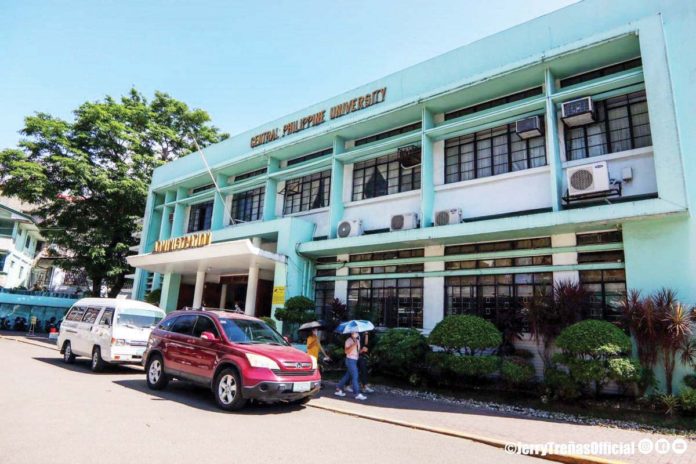
BY GEROME DALIPE IV
ILOILO City—More than 12,000 law graduates will troop to 13 local testing sites nationwide to take the 2024 Bar examinations on Sept. 8, 11, and 15.
In Iloilo City, the Supreme Court has designated Central Philippine University (CPU) as one of the local testing centers (LTCs) in the Visayas for the three-day exams.
Hundreds of barristers from CPU, University of San Agustin, West Visayas State University, and nearby provincial law schools in the Visayas are expected to take the Bar exams at the CPU testing center.
The 2024 Bar Exams will cover six core subjects: Political and Public International Law, Commercial and Taxation Laws, Civil Law, Labor Law and Social Legislation, Criminal Law, and Remedial Law, Legal and Judicial Ethics with Practical Exercises.
The Bar exam is the most-feared professional exam in the country, if not the most difficult.
Ralph A. Sarmiento, dean of the University of St. La Salle (USLS) College of Law in Bacolod City, noted that taking the Bar exam is like putting the barrister’s entire being, personality and dignity at stake.
“People, who know you and whom you know, as well as your friends and enemies alike, would be on close watch, eagerly waiting to see you succeed or fail, earnestly waiting to join you in your celebration or to laugh at you in your defeat,” Sarmiento shared on his blog titled “Bar Exam Tips, Secret, Techniques, & Strategies”.
The release of the Bar Exam results, deemed as “Judgment Day” for every law student, is daunting.
“It separates the sheep from the goats. It brings out tears of joy to some and tears of frustration, sadness, and grief to others. Taking the Bar exam is therefore a serious matter. Much is at stake,” he stressed.
So why do most barristers flunk the Bar exams and what does it take to “slay the dragon?”
For Dean Sarmiento, a barrister should possess the three Ls to become a lawyer – Logic, Language, and Law.
The first two Ls are supposed to be in one’s arsenal even before entering law school, while the third L is learned in law school, he pointed out.
“Most of the reasons for flunking the Bar exams are related to these three Ls. People who flunk have problems in one, in two, or all the three Ls,” said Sarmiento.
Logic problems come out in terms of misappreciation of the facts and the issues, poor analysis, faulty reasoning, unjustified conclusions, and the like, he added.
“Language problems come in the form of grammatical errors, poorly structured sentences, misspelled words, and poor written communication skills,” stressed Sarmiento.
Law problems, on the other hand, come in the form of ignorance of the law or legal principles implicated by the questions, poor understanding of the law, obsolete legal knowledge, and not knowing how to apply the law to the facts of the problem.
Other reasons, he added, are inadequate preparations, health problems, and sometimes even emotional problems.
Hence, he said that preparation is the key to success to success in the Bar Exam. “But this is not just any kind of preparation. You must have a game plan and you should stick to it as if your entire life depends on it,” he emphasized.
First off, Sarmiento said a barrister should analyze his strong and weak subjects before he even begins his intensive Bar preparation and review.
“Evaluate your performance on each of the eight Bar subjects. Your transcript of law school records can give you a more or less objective evaluation of your performance. Examine your transcript of records and compute your grade average on each of the eight Bar subjects,” he said.
Barristers should also consider the weight of each Bar subject as well as their own perceptions of their levels of difficulty in allocating their review time.
“More review time should be allocated to morning subjects, especially to Remedial Law, but make some adjustments on subjects that you perceive to be more difficult than the others,” said Sarmiento.
He added that it is also vital for the barristers to conduct an inventory of their books and materials to ensure they have all subjects and topics covered.
Sarmiento reminded the law graduates that Bar review and preparation isn’t law school anymore where the law students just sit down in long hours of lectures and wait for their turn to recite provisions of law and cases.
“You no longer study to survive the horrifying graded recitations. The Bar exams are not only about what you have remembered or what you can recite. It tests more than mere memory and understanding. It tests your ability to analyze legal problems and to apply relevant laws and jurisprudence,” he stressed.
He emphasized studying smartly, not just hard by choosing topics that are important or relevant and leaving questions that are out of this world.
It is also important to classify legal provisions into different categories since the actual amount of legal knowledge the barrister needs in each subject is limited.
Sarmiento also emphasized the essence of practicing tests under exam conditions to test oneself using a full-length Bar exam questionnaire in a full stretch of four hours or two Bar subjects for a total of seven hours in a single day.
“See if your writing hand and fingers can survive seven hours of punishment. See if you can manage to answer without having to answer the call of nature. Evaluate your mental and physical readiness for this kind of exam,” said Sarmiento.
He reminded the examinees of the three Cs in the study of law and to never take codal provisions for granted. Hence, codal provisions should be studied first, followed by commentaries, and the cases.
The barristers should also prepare physically and emotionally since the Bar exam is not just about mental preparation.
“Keep a healthy lifestyle throughout the review period and the Bar Exam month. Get enough sleep. Eat nourishing meals. Exercise to keep your body and mind sharp,” Sarmiento noted./PN




